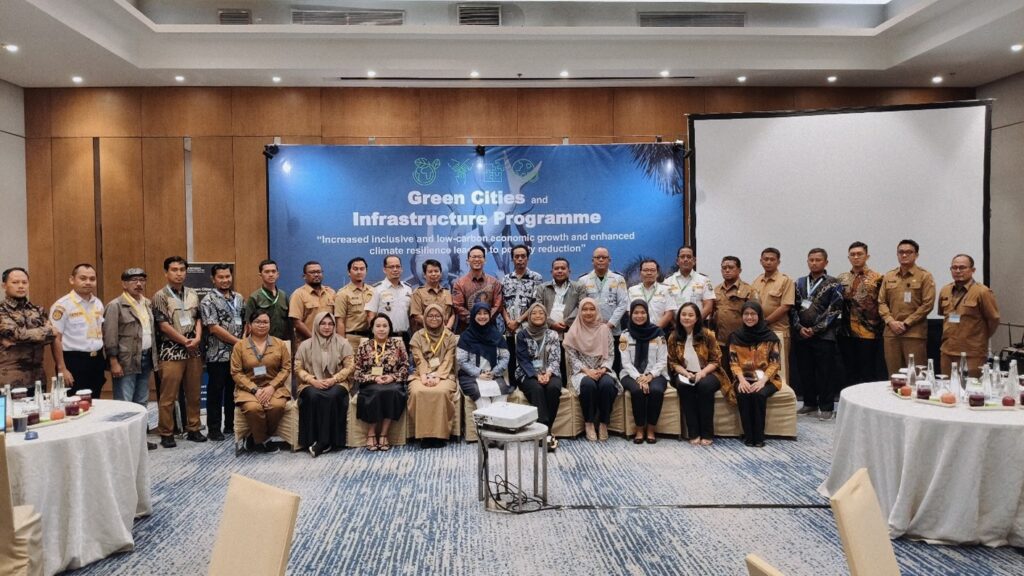- GCIP successfully hosted a second capacity building workshop focused on advancing strategic urban mobility projects within the Greater Surabaya Metropolitan Area (GKS+).
- The workshop gathered key stakeholders, including representatives from the East Java provincial government, local municipalities, transport authorities, urban planners and community leaders, to help improve urban mobility in GKS+.
- Building on the outcomes of the first workshop in January which created a vision for Surabaya, this session evaluated how transport infrastructure, governance frameworks, climate resilience and urban liveability could be improved.

Participants of the second GCIP capacity building workshop at the Four Points Hotel in Surabaya.
On 10 February, GCIP hosted the next capacity building workshop in Surabaya to overcome constraints and advance strategic urban mobility projects within GKS+.
The workshop brought together key stakeholders from the East Java provincial government, local government officials, transport authorities, urban planners and community leaders to collaboratively assess the current mobility conditions in Surabaya and identify strategic projects for implementation.
Participants worked in small groups to conduct a SWOT analysis and project mapping across four key themes aimed at improving mobility conditions in GKS+:
- Integrated Transportation Institution
- Integrated Public Transport
- Climate Resilience
- Liveable City
Building on the outcomes of the first visioning workshop, this session focused on evaluating transport infrastructure, governance frameworks, climate resilience and urban liveability. The Sustainable Urban Mobility Plan (SUMP) of GKS+ served as a reference document, guiding stakeholders in identifying priority projects to enhance connectivity and public transport integration. While existing projects from SUMP were assessed, participants also had the opportunity to propose new project ideas aligned with the region’s urban mobility goals.
The workshop resulted in a long list of potential projects, which will inform the third capacity building workshop, where stakeholders will prioritise critical initiatives for implementation. A member of GCIP leading the work in Surabaya stated:
“The workshop was a crucial milestone in strengthening public transport integration and infrastructure financing, essential for Surabaya’s sustainable development.”
GCIP remains committed to supporting urban mobility in Indonesian cities through technical expertise, policy alignment and capacity building. Future efforts will focus on institutional strengthening, securing funding opportunities and ensuring equitable access to sustainable transport infrastructure, reinforcing Surabaya’s vision for a low-carbon, resilient and inclusive urban transport system.
The UK’s Green Cities and Infrastructure Programme is tackling climate change and extreme poverty by accelerating the delivery of sustainable green cities and climate-resilient infrastructure.
Published
04/03/25
